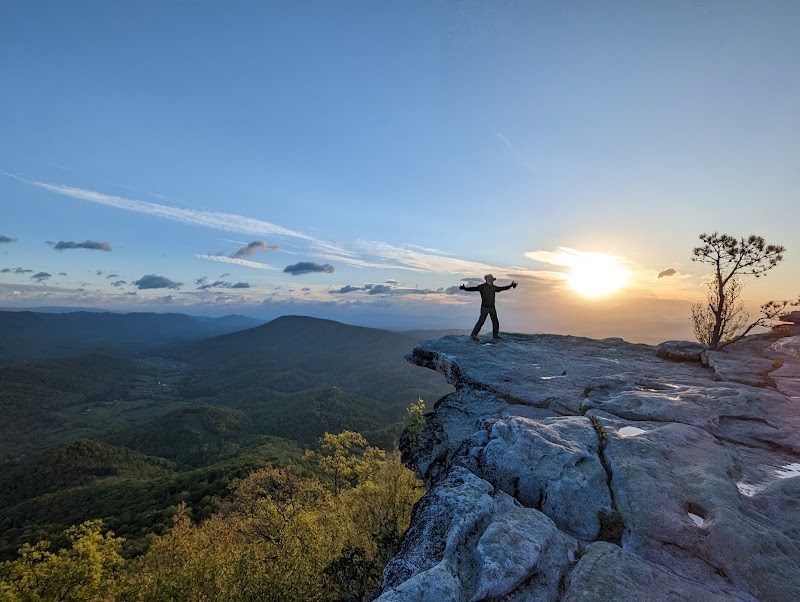
Corn Festival in Lebanon, Pennsylvania: A Celebration Rooted in Community and Flavor
Experience Lebanon’s Corn Festival, where fresh sweet corn meets hometown charm and lively entertainment. This four-day event in Pennsylvania offers a hands-on celebration of local agriculture, with food, music, and fun for all ages.
Arrive Early to Avoid Crowds
Parking and lines build quickly after midday, so arriving in the morning helps you secure parking and enjoy quieter vendor interactions.
Wear Comfortable Footwear
Festival grounds are a mix of pavement and grass with occasional uneven patches; sturdy, comfortable shoes will keep your feet fresh through the day.
Stay Hydrated
September days can still be warm; carry a water bottle and look for water refill stations to stay properly hydrated amid the festivities.
Bring Cash for Small Vendors
While many vendors accept cards, some smaller booths are cash-only, making it easier to have cash on hand for quick purchases.
Corn Festival in Lebanon, Pennsylvania: A Celebration Rooted in Community and Flavor
Each September, Lebanon, Pennsylvania, rallies around its Corn Festival with the kind of hometown energy that feels equal parts adventure and tradition. This four-day event is more than just a fair; it’s a hands-on experience layered with the aroma of fresh corn on the cob, the sound of live country music, and the bustle of families and friends reconnecting over seasonal treats.
Held in downtown Lebanon, the festival showcases the region’s agricultural pride—especially its sweet, locally grown corn that’s juicy and full of flavor. Visitors step into an environment alive with food vendors serving everything corn-related, from classic boiled ears to tamales and even corn-based desserts. Beyond satisfying your appetite, the festival serves up entertainment ranging from craft booths to carnival rides, making it accessible for all ages.
For visitors planning their trip, timing is crucial—early to mid-September is peak festival season, right as the corn harvest is at its freshest. This timing means crowds are busy but manageable, and the weather is still comfortably warm for outdoor activities. Parking is easy but can fill quickly during peak weekend hours, so arriving early or using public transportation options is advisable.
The festival layout is straightforward, with clear signage that guides attendees through various sectors—from food stalls to live stages. Don’t miss the corn roasting pits, where staff actively engage with guests, explaining the process while offering tastings. The vibe here is hands-on, lively, and informative, giving visitors a real connection to the crop and its local significance.
To fully immerse yourself, plan to spend at least half a day enjoying the festival’s mix of entertainment and cultural exhibits. Practical tips include bringing cash for quicker purchases at small booths, wearing comfortable shoes for walking on uneven festival grounds, and staying hydrated, especially if September’s sun leans toward warmth.
This festival encapsulates the region’s agricultural heart and community spirit without pretension—just straightforward fun, food, and fellowship. Whether you’re a local or traveling from nearby cities, the Lebanon Corn Festival offers a genuine slice of Pennsylvania’s fall flavor and festive energy. It’s the kind of event that invites you to experience the thrill of simple pleasures fiercely celebrated and eagerly shared.
For adventurers seeking to expand their itinerary, the festival’s central location makes it easy to slip into nearby hiking trails or historic town tours, blending outdoor activity with cultural exploration all in one trip.
Nearby Trips
All Adventures
Boat Charters
Water Activities
Adventures near Lebanon, Pennsylvania
Discover the unique and memorable adventures that make Lebanon, Pennsylvania special.
Frequently Asked Questions
When exactly is the Lebanon Corn Festival held?
The festival typically runs for four days in early to mid-September, coinciding with the peak of the local corn harvest.
Is there parking available near the festival?
Yes, there are multiple parking lots and street parking options downtown, but these fill up quickly by midday, especially on weekends.
Are pets allowed at the festival?
Pets are generally not permitted due to food safety regulations and crowd control, except for service animals.
What types of corn dishes can I expect?
Vendors offer a range of corn-based foods like classic boiled corn on the cob, roasted corn, corn tamales, corn chowder, and various sweet treats made from cornmeal.
Does the festival have activities for children?
Yes, there are carnival rides, face painting, kid-friendly craft booths, and live performances suitable for families.
Is the Corn Festival wheelchair accessible?
The main festival area is mostly accessible with paved paths and ramps; however, some vendor spaces might be on uneven ground.
Recommended Gear
Comfortable Walking Shoes
Grass and pavement mix requires solid footwear to navigate dirt patches and festival crowds comfortably.
Reusable Water Bottle
Hydration is key to enjoyable days under the September sun; water refill stations are available.
Light Jacket
Evenings and early mornings can be cool; a light jacket helps maintain comfort after sunset.
Cash
Small vendor booths often prefer cash, speeding up transactions and supporting local entrepreneurs.
Local Insights
Hidden Gems
- "Leesport Farmers Market nearby offers additional local produce and handcrafted goods."
- "The Benjamin Ring House, a historical site close by, showcases Lebanon's colonial past."
Wildlife
- "Watch for songbirds like cardinals and blue jays attracted to the festival’s green spaces."
- "At dusk, you might spot bats circling near the corn roasting pits, hunting for insects."
History
"Lebanon's Corn Festival grew from local farming traditions dating back over 70 years, celebrating the region’s critical corn crop and linking community with agricultural heritage."
